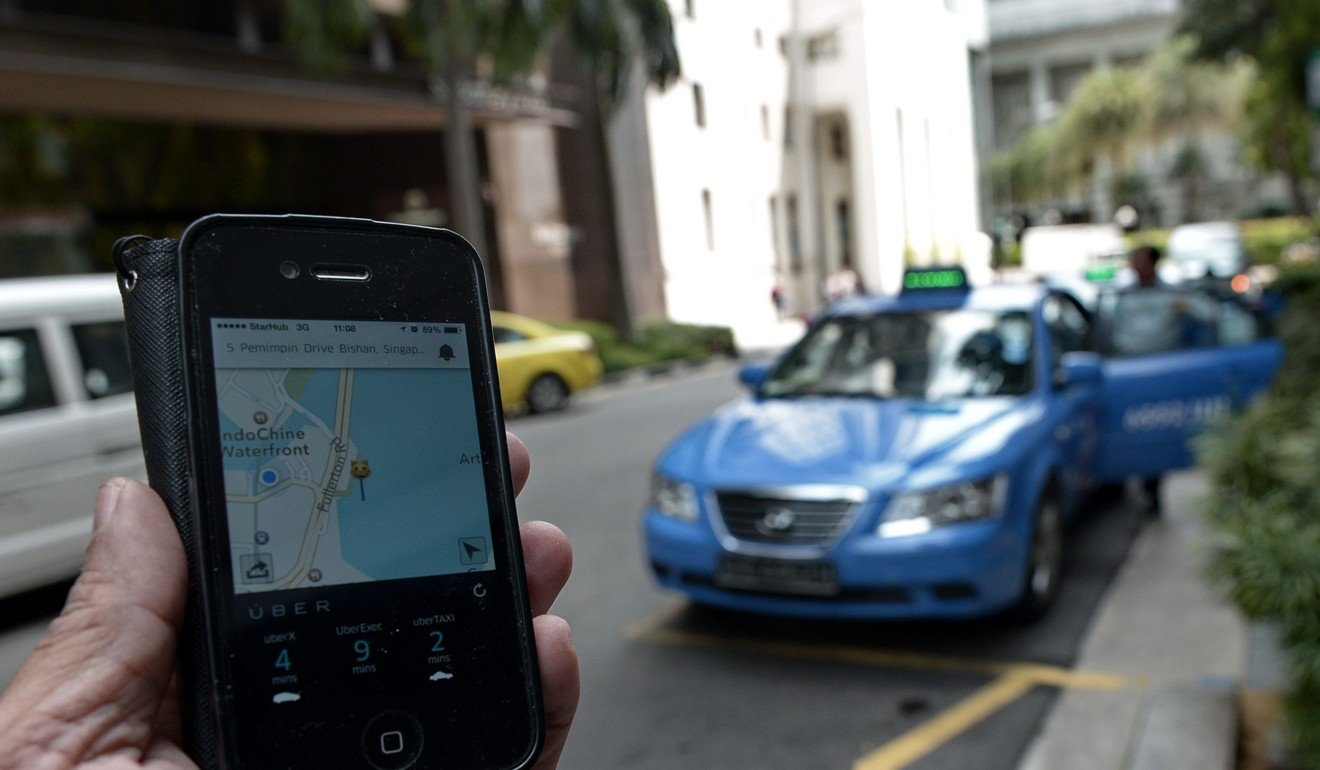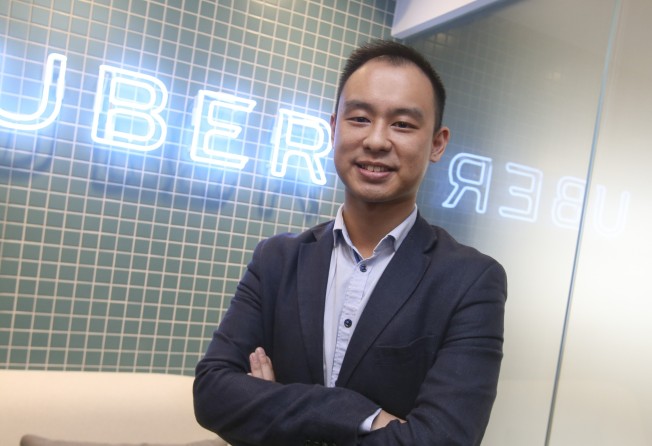
Hong Kong lagging behind other Asian cities with reluctance to accept Uber, ride-hailing firm warns
Its general manager in Hong Kong says unwillingness to legalise company’s services will stymie city’s growth in innovation technology

The Hong Kong government’s reluctance to accept Uber is impeding the city’s progress in innovation technology, placing it behind other Asian economies, the ride-hailing company has said, while pledging to use its big data and services to assist authorities with town planning.
Uber Hong Kong’s general manager Kenneth She Chun-chi made the remarks on Monday, a few days after Secretary for Transport and Housing Professor Anthony Cheung Bing-leung said the company could consider changing its business model and operate like a taxi company instead.
The minister, who was announcing a long-term development plan for transport in the city, added that “some companies were just not willing to be regulated under established mechanisms”, and that “no countries and no governments would allow that”.
But Uber’s She said that the unwillingness of authorities to adopt the ride-hailing services placed Hong Kong behind other Asian economies in terms of innovation technology, naming Singapore, which had already embraced the company’s offerings, as an example.

“At a time when Asia has put innovation technology development, especially the notion of a sharing economy, at the forefront, shouldn’t we think about whether we are lagging behind?” She said on a Commercial Radio programme on Monday.
“Many major tech companies, such as Google and Facebook, want to grow their business in Asia. But they didn’t set up their headquarters in Hong Kong. They did so in Singapore. Shouldn’t the Innovation and Technology Bureau take the lead in thinking about how it can encourage these innovation technology companies to invest more in Hong Kong?”
In Singapore, new rules state that drivers can legally work for ride-hailing apps such as Uber as long as they undergo a course to get licensed. The drivers also need to go through physical tests.
Uber services could also help ease traffic congestion, She said, adding that they had been successful in doing so in some US cities.
“When you cross [Hong Kong’s] Cross-Harbour Tunnel, you can often see that there are no passengers in the back seat of cars ... when there are five people in one car, instead of five people in five different cars, there will be 80 per cent fewer cars in the tunnel,” the manager said, referring to the company’s car-pooling service.
He also said that Uber could use its data to help the government with town planning, as the company had information on passenger demands at different times and locations.
With this data, and fewer cars on the road after using ride-hailing services, the government could build fewer car parks, eventually opening up more land for housing, She suggested.
He said that even Premier Li Keqiang had mentioned the central government’s support for a sharing economy during the annual meetings of the National People’s Congress, and the Chinese People’s Political Consultative Conference in March.
And in a report released shortly after the meetings, the State Information Centre said the transaction volume of China’s sharing economy would account for more than 10 per cent of the country’s gross domestic product by 2020, rising to about 20 per cent by 2025.
The Hong Kong government has taken a tough stance against Uber. Last month, 22 of its drivers were arrested on suspicion of picking up passengers without a hire-car permit and third-party insurance.